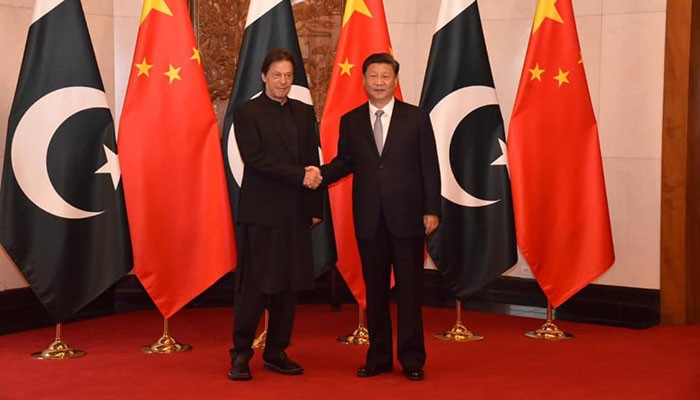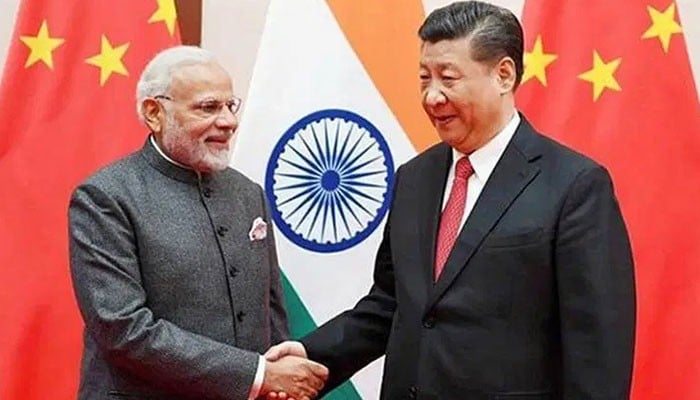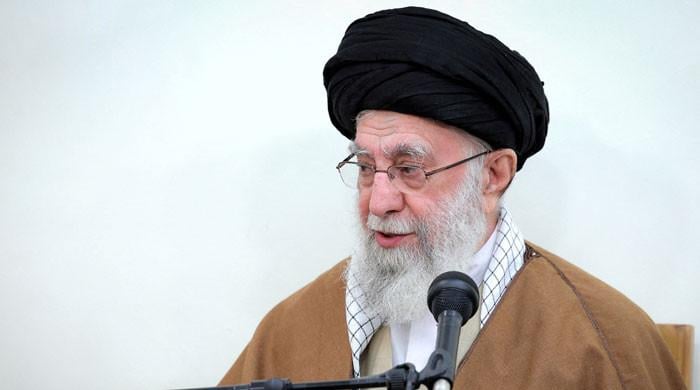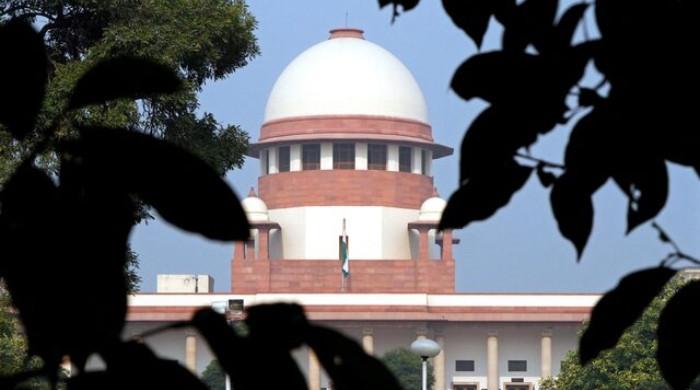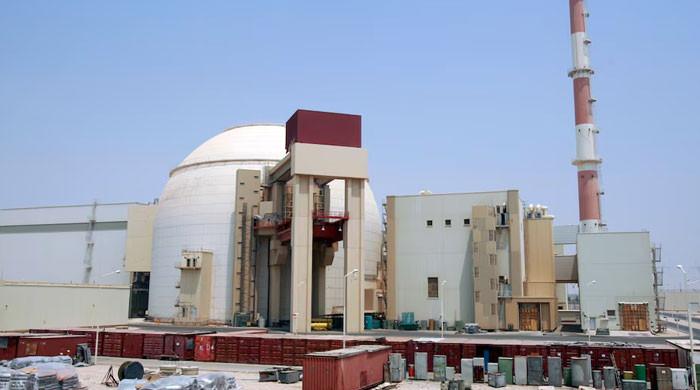Amid Kashmir tensions, India requests China to focus on common ground as leaders meet
India and China, home to more than a third of humanity, have never been the best of friends
October 12, 2019
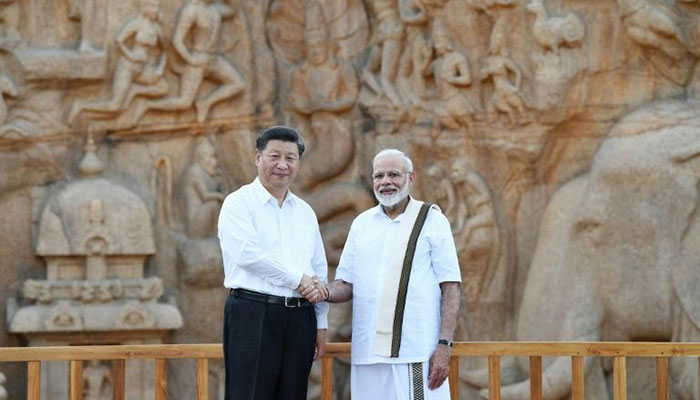
MAHABALIPURAM: Chinese President Xi Jinping and his Indian host Prime Minister Narendra Modi pledged at an informal summit to cooperate against "radicalisation", India said late Friday, after the Asian giants with historically prickly ties had exchanged sharp words over Kashmir.
The seaside meeting aimed at mending relations after India irked China by its splitting of Jammu and Kashmir state into two in August. The decision will also make the area's Ladakh region -- part of which is claimed by Beijing -- a separate Indian administrative territory.
India in turn has been enraged by China's diplomatic backing for Pakistan, which controls a much larger part of the disputed Muslim-majority Kashmir region.
Also read: Chinese troops clash with Indian soldiers in disputed border region
But at their talks on Friday, the leaders acknowledged a common challenge, Indian Foreign Secretary Vijay Gokhale said.
"Both leaders said that these were large countries and that radicalisation was a matter of concern to both, and that both would work together to see that radicalisation and terrorism did not affect the fabric of our multicultural, multi-ethnic, multi-religious societies", Gokhale told reporters.
Foreign ministry spokesman Raveesh Kumar called it "a highly productive day".
Part of Beijing's Belt and Road infrastructure mega-programme is planned in Azad Jammu and Kashmir, and Xi held talks with Prime Minister Imran Khan in Beijing just two days before meeting Modi.
When Xi said he supports Pakistan´s "legitimate rights", India's foreign ministry thundered it was "not for other countries to comment on the internal affairs of India".
Harsh Pant, an international relations professor at King's College London, told AFP that China's backing of Pakistan "has left a very bad taste in India's mouth".
Also read: PM Imran in bid to ease Saudi Arabia and Iran tensions after successful China visit
A dispatch from China's official Xinhua news agency early Saturday gave no specifics on the talks but said Xi received a "warm welcome" from Modi and they agreed their countries "should respect and learn from each other so as to jointly achieve common development and prosperity."
Ancient ties
India and China -- home to more than a third of humanity -- have never been the best of friends, going to war in 1962 and engaging in a series of Himalayan standoffs since.
The Dalai Lama, the Tibetan spiritual leader and long an aggravation for China, is based at Dharamsala in northern India.
Indian police detained Tibetan students who protested Xi's visit.
Also read: PM leads 'human chain' event to express solidarity with Kashmiris
In 2017, Delhi and Beijing faced off for two months on the Doklam plateau -- claimed by China and Bhutan -- when Chinese troops started building a road and India sent its forces to halt them.
However, the following year Xi and Modi patched things up in China's Wuhan.
Their latest meeting, over elaborate meals and dance performances at Mahabalipuram Friday and Saturday, is aimed at building on that.
Also read: India revives military landing ground for fighter jets near Chinese border
The World Heritage site of Mahabalipuram is home to historical monuments that pay testament to India and China´s ancient ties.
But since Wuhan other irritants have emerged, including a reported "scuffle" between troops of the two countries in Ladakh last month and Indian military activities in the northern Indian state of Arunachal Pradesh, part of which Beijing claims.
India and Washington, seeking with others to counter China´s growing regional assertiveness, have deepened military cooperation and India has moved closer to the Quad security dialogue with Japan, the United States and Australia.
Also read: Pakistan knows how to defend itself, Rafale or no Rafale: FO
On commerce, India and China are both facing a protectionist America and want greater access to each other's markets. Gokhale said the leaders talked about enhancing trade and investment, "and this also obviously included the issue of the trade deficit" Delhi has with Beijing.
China wants India to ignore Western cyber-security concerns on Huawei -- already a big player in the Indian mobile sector -- and allow the telecoms firm to be part of 5G trials.
Huawei's "contribution to India's economic and social development is obvious to all," China's foreign ministry said this week, hoping Delhi would make "independent and objective judgments and decisions".
